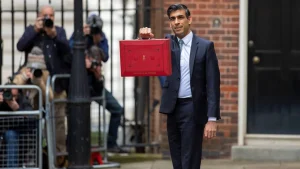Autumn Budget 2021 what does it means for the small business
Here is a resume of the key announcements in the Autumn Budget 2021 made by Chancellor Rishi Sunak in the House of Commons, and what impact this will have on the small business:
Business rates cut by 50% for retail, leisure and hospitality for one year
Chancellor Rishi Sunak has announced companies in the retail, hospitality and leisure sectors will be have their business rates halved for one year.
Pubs, music venues, cinemas, restaurants, hotels, theatres and gyms are all eligible for a tax cut worth £1.7bn, in the biggest cut to the tax in 20 years.
From 2023, commercial properties subject to business rates will be revalued every three years rather than five years at present.
Referring to Labour’s plan to abolish business rates eventually, Mr Sunak said: “It would be wrong to find £25bn in extra borrowing, cuts to public services, or tax rises elsewhere, so we will retain business rates, but with key reforms to ease the burden and create stronger high streets.”
He also scrapped next year’s planned annual increase in rates for all companies, meaning bills will be 3 per cent lower.
Green business rates incentive
Mr Sunak also said businesses will be encouraged to plough money into green technologies and ramp up investment in their factories and offices under new tax breaks.
Investment incentives worth £750m will allow firms to avoid sudden rises in their business rates bills after making improvements to their property, the Chancellor announced.
The business rates system effectively punished firms for investment, as this increased the value of their property and subsequent tax bills.
R&D spending pledge
Elsewhere, Mr Sunak confirmed a Government target to spend £22bn on R&D by the end of Parliament, in addition to R&D tax reliefs.
Put together, this means total public investment in R&D is increasing from 0.7 per cent of GDP in 2018 to 1.1 per cent of GDP by the end of the Parliament.
The Treasury widened R&D tax reliefs to include cloud computing and data costs.
Economic rebound
The country’s sharp rebound from last winter’s lockdown means that the economy is predicted to grow by 6.5 per cent this year, the Chancellor said. This is nearly twice as much as the 4 per cent predicted by the Office for Budget Responsibility (OBR) in its March forecast. It is due to grow by a further 6 per cent next year.
National Living Wage increase
The National Living Wage, paid to those aged 23 and over, will rise to from £8.91 to £9.50 an hour – an increase of 6.6 per cent.
The rise in the National Living Wage has been recommended by the Low Pay Commission, the independent body which advises Government on the issue. The increase amounts to an additional £1,000 a year for someone in a full-time role working about 35 hours a week.
In 2019, the Conservative government pledged to increase the National Living Wage to about £10.50 per hour, making it the highest in the developed world.
However, small businesses have warned that increasing wages too much will put jobs under threat as many low-paid sectors recover from the Covid blow.
One third of small businessees are planning to increase prices to pay for a bigger wage bill while 15 per cent said it would affect hiring, according to a survey by the Federation of Small Businesses.
Mike Cherry, chairman of the FSB, warned that any pay rise “must be affordable without jeopardising jobs”.
“Small firms are still trying to recover from the pandemic, and the last thing they want to do is to force customers to pay more or make cuts to staffing numbers,” he said.
Undoubtedly the minimum wage rise would be “another cost challenge” for small business owners, as the 6.6 per cent increase will cost them £1,000 per year for each minimum-wage full-time worker.
Annual Investment Allowance extended
The £1m Annual Investment Allowance – a break which allows firms to deduct the cost of investments from their taxable profits – will be extended to March 2023.
National Insurance to rise
As announced in September, from April National Insurance rates for both employees and the self-employed will rise by 1.25 percentage points across earnings bands, raising around £12bn a year.
Levelling Up Fund projects
The Chancellor also announced the first successful bids for the “Levelling Up Fund” to tackle regional inequality. The Government will spend £1.7bn on projects in a hundred locations, including Aberdeen, Clwyd South, Stoke-on-Trent, Ashton-under-Lyne, Sunderland, Doncaster and West Leeds.
Overall we can conclude that the business environment will remain challenging for the small and independent businesses in the United Kingdom. Many are expected to close doors if we have another Covid-19 lockdown, which is expected during winter period.
Adapt Accountancy and Business Solutions Ltd is here to offer our customers a piece of mind. We work with businesses in developing a divercified business solutionseasy. Our easy online digitalised access sytems will assist in fast and prompt transmission to the information. We work with our customers using all means of communication ensuring fast reach with our staff.
If the Autumn and Winter ‘Plan B’has created an uncertainty within your business we are here to help. Don’t hesitate to reach out on 0121 288 889 or email us at [email protected]

